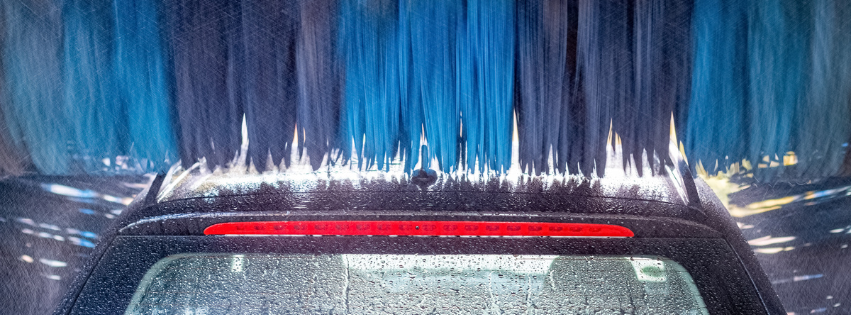Car Wash Construction: Building the Foundation of a Profitable Wash Business
A Complete Guide to Planning, Designing, and Building a Successful Car Wash Facility

Car wash construction is more than pouring concrete and setting up equipment — it’s about designing an efficient workflow that enhances customer experience and maximizes profit. Whether you’re opening your first site or expanding an existing chain, careful planning during the construction phase determines long-term success.
In this guide, we’ll cover the major phases of car wash construction, including site planning, permits, structural design, materials, and eco-friendly systems.
Step 1: Strategic Site Planning and Feasibility
Before breaking ground, your site selection and planning process should consider accessibility, visibility, and traffic flow. Choose a location with high daily vehicle counts, proximity to major roads, and easy entry and exit points.
Perform a feasibility study to assess local demand, zoning laws, and competition. You can consult professional firms such as Car Wash Management for expert insights on market analysis and property evaluation.
Key factors to evaluate include:
- Vehicle count per day
- Proximity to gas stations or convenience stores
- Drainage and water supply availability
- Local environmental regulations
A professional assessment helps ensure the investment aligns with projected revenue and sustainability goals.
Step 2: Designing for Efficiency and Flow
Design is the invisible architect of profitability. The layout of your car wash determines throughput — how many cars can be serviced efficiently within an hour.
Tunnel car washes, for instance, require adequate space for conveyors, prep stations, and drying bays. Self-service and in-bay automatic setups may need less real estate but still require thoughtful design to prevent bottlenecks.
Important design tips:
- Keep customer flow one-directional to prevent confusion.
- Allocate distinct zones for washing, vacuuming, and drying.
- Plan for equipment access and maintenance clearance.
- Incorporate modern aesthetics — signage, lighting, and landscaping enhance curb appeal and attract more customers.
For professional layout recommendations, refer to Car Wash Equipment Setup and explore customizable options based on your wash type and target volume.
Step 3: Acquiring Permits and Meeting Regulations
Car wash construction requires adherence to multiple regulations. These include environmental permits, building codes, and wastewater management approvals.
Here’s a quick checklist to streamline compliance:
- Environmental Permits: Required for water discharge and chemical use.
- Zoning Approval: Ensures your site’s compatibility with commercial car wash operations.
- Construction Permits: Needed for structural, plumbing, and electrical works.
- Fire Safety and Accessibility: Ensure compliance with local fire codes and the Accessibility Law (RA 7277 in the Philippines).
Working with experienced consultants helps prevent costly delays and ensures that the project meets national and local standards.
Step 4: Sustainable Construction Practices
Modern car washes are moving toward eco-friendly and sustainable construction. This not only reduces operational costs but also strengthens your brand image among environmentally conscious customers.
Here are some green strategies to consider:
- Install water reclamation systems: Reuse up to 85% of wash water and minimize wastage. Learn more from Water Reclamation Systems for Car Washes.
- Use solar panels for heating or energy supplementation.
- Choose non-toxic, biodegradable detergents for environmental safety.
- Integrate smart sensors to manage water flow and reduce consumption per wash.
Building sustainability into your design ensures long-term savings and compliance with global environmental standards.
Step 5: Selecting Durable and Efficient Materials
Choosing the right materials affects durability, aesthetics, and safety. Floors should be non-slip and chemical-resistant; walls must withstand constant moisture and temperature fluctuations.
Recommended materials:
- Reinforced concrete floors with epoxy coating for long-lasting durability.
- Polycarbonate roofing panels for light diffusion.
- Stainless steel or powder-coated metal framing for wash bays.
- LED lighting systems for energy efficiency.
When sourcing materials, ensure your suppliers are reputable and can meet both quality and environmental requirements.
Step 6: Equipment Installation and Systems Integration
Once construction is complete, equipment installation is the next milestone. The right mix of car wash equipment — pumps, dryers, conveyors, and chemical systems — determines speed, consistency, and customer satisfaction.
Coordinate with an installation specialist like Car Wash Management’s Equipment Services to ensure seamless setup and integration.
They can assist with:
- Installation and calibration of wash tunnels
- Plumbing and electrical connections
- Testing and safety checks
- Post-installation training and maintenance support
Efficient systems integration creates a reliable wash process and reduces downtime.
Step 7: Post-Construction Inspection and Launch
After everything is installed, conduct a comprehensive inspection. Test water flow, verify safety systems, and run trial washes to ensure the entire system performs optimally.
Once approved, you’re ready for your soft launch — a controlled opening to gather customer feedback before your official grand opening. This stage also lets you fine-tune pricing, promotions, and operational procedures.
Conclusion
Car wash construction is a blend of engineering precision, strategic design, and business foresight. Every decision — from layout to sustainability features — contributes to long-term profitability and customer trust.
Whether you’re developing a small in-bay wash or a full tunnel operation, working with experienced professionals like Car Wash Management ensures your investment is built to last.
Building a car wash isn’t just about washing cars — it’s about constructing a customer experience that shines with reliability and efficiency.
